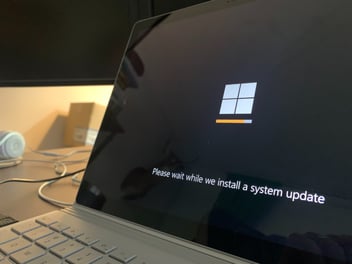Ransomware attacks on educational institutions are more than a mere inconvenience. They disrupt classes, result in valuable lost teaching time, pose financial burdens, and can expose sensitive personal data breaches. In the K-12 sector, unexpected closures burden parents with the unpredictability of needing time off work. For higher education students, they face potential data theft during a pivotal moment in their career transitions.
Between 2018-2021, the K-12 educational sector witnessed a disturbing surge in ransomware incidents. The number soared from 400 to over 1,300. The implications are tangible. Cases such as Truman State University, which experienced a disruptive multi-day shutdown, and the Penncrest school district's prolonged internet blackout, paint a concerning picture of the current threat landscape.
Why it's More Than Just About Lost Classes:
Understanding the broader impact of these attacks is essential. Beyond the immediate technical challenges, there's a human toll. Teachers struggle to catch up with curricula, parents juggle work and unexpected childcare needs, and students face academic and sometimes personal data insecurities.
Proactive Steps to Counter Ransomware Threats:
With tools like Lockbit 2.0 capable of swiftly encrypting substantial data volumes, time is of the essence. Institutions, supported by local governments, must adopt a proactive stance. Instead of the unpalatable choices of paying a ransom or completely rebuilding IT systems, institutions should invest in robust early detection mechanisms. This involves focusing on high-risk areas such as monitoring for phishing emails, safeguarding remote connections, tracking unexpected system changes, and closely observing unusual data movements.
Strengthening password integrity is another pivotal measure. Given the trend where attackers exploit repeated or previously compromised passwords, adopting advanced password management tools becomes critical. Systems like Specops Password Policy with Breached Password Protection not only block known compromised passwords but also guide users towards creating stronger, more secure ones.
In addressing the vulnerabilities of public systems, institutions must ensure the safety of remote connections through VPNs and similar secure channels. Actively patching known vulnerabilities, a lesson underscored by the PaperCut software incident, minimizes exposure. By dedicating resources to protect only the necessary systems, IT workload becomes more manageable and efficient.
Efficient and secure user account management is a cornerstone of effective cybersecurity. Removing or updating outdated accounts is imperative, as a single forgotten account can become a gateway for intruders. Regular account audits and adherence to the principle of least-privileged access, where users have only the permissions they strictly need, ensure that compromised accounts do minimal damage.
When it comes to endpoint defense strategies, educational institutions should adopt stringent measures. Employ tools that block suspicious executables, transition to the latest and most secure versions of network protocols, and ensure regular and comprehensive software updates for older OS systems.
Emphasizing the importance of offline backups, in the unfortunate event of a successful attack, up-to-date offline backups can serve as a lifeline for swift recovery. Committing to a routine of testing these backups, ensuring they are both current and robust against potential threats, is paramount.
The threats posed by ransomware to the educational sector are increasingly aggressive and sophisticated. However, with the right amalgamation of tools, strategies, and governmental backing, schools and universities can fortify their defenses, ensuring a safe and secure learning environment for all.
Photo by Element5 Digital on Unsplash




